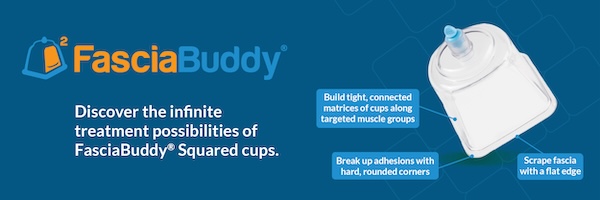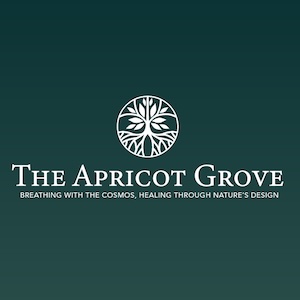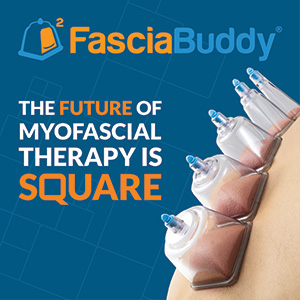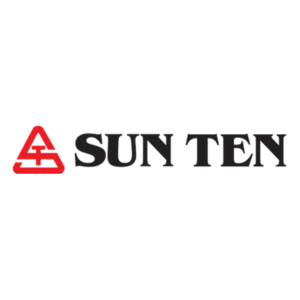To use herbs within the scope of traditional Chinese medicine, we must first understand the qualities, temperatures, and tastes that dictate how each herb will function. Flavor, Taste and Nature gives us a snapshot of how an herb travels in the body, how it functions and the dysregulation or disharmony it may address.
With the botanical world lending us a diverse palette of flavors to promote health and healing, the art of herbs in Chinese herbal medicine comes down to the skillful use of flavors individually and in combination to balance the phases and the corresponding channels and organs. It’s like the artful combination of textures and flavors in a kitchen—but to restore health and harmony to the body.
One of the defining strengths of our therapeutic practice is the ability to match individuals with particular botanical medicines. As such, a practitioner’s experiential understanding of an herb’s energetics via the direct perception of taste, flavor, and nature was—and still can be—a powerful tool for healing.
Today’s conversation is one borne out of synchronicity. What was scheduled to be a 3-person panel discussion with Simon Feeney, Loren Stiteler, and Boris Bernadsky turned out to be a ‘party’ as Andy Ellis and Frank Griffo joined us. The outcome was a lively exchange that covered diverse topics around herbs. We mulled over the flavor-based nature of herbalism, the shortcomings of our education system, the variability of herbs, and the processing/preparation of Chinese herbs
Listen into this discussion on how flavor, taste, and nature can inform our understanding and clinical application of herbs.
In This Conversation We Discuss:
-
Learning and unlearning the flavor and nature of herbs in traditional Chinese medicine
-
Flavor and the factors that contribute to the function of an herb
-
Making sense of the experience of taking an herb, attending to what is happening to your physiology, and adapting it into clinical practices
-
A cautionary tale on experimenting with herbs
-
The variability of herbs and the influence of cultivation practices on their effect on the body
-
Differences in physiology and the personal nature of our medicine
-
The extraction process to create flavorful herb products
-
Imposition of the Western models of medicine
-
The need for formal education to teach a flavor and nature-based approach to herbalism
-
“What are some tips for people interested in exploring how flavor and nature can help inform their work in herbalism?”
Endeavor to fit the theory to the world; do not try to fit the world to your theory.
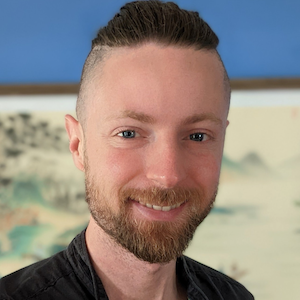 Hi! My name is Loren, and I’m one of the few second generation practitioners of Traditional Chinese Medicine outside of the East Asian community. Growing up around acupuncture and herbal medicine engendered within me a keen interest in the Chinese sciences. And when I began my undergraduate education, I finally had the opportunity to travel to China where I fulfilled my childhood dream of studying Mandarin.
Hi! My name is Loren, and I’m one of the few second generation practitioners of Traditional Chinese Medicine outside of the East Asian community. Growing up around acupuncture and herbal medicine engendered within me a keen interest in the Chinese sciences. And when I began my undergraduate education, I finally had the opportunity to travel to China where I fulfilled my childhood dream of studying Mandarin.
I now use my linguistic skills in the preservation of traditional Chinese medicine through the research of medical literature and by teaching medicine, philosophy, and history at Yo San University.
There is no one best approach, sometimes you need to give patients a foot rub, or use hair thin needles they don’t feel, other times you need to make them look like a porcupine.
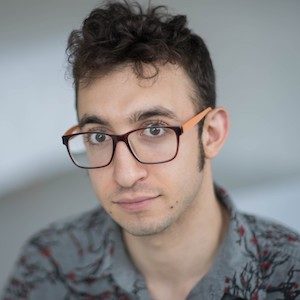 I first experienced how effective Acupuncture can be after suffering a back injury as a teenager. I was unable to walk without pain, and doctors were unable to offer any solutions. My mother took me to see an acupuncturist. It was like a hot knife through butter – I walked out of his very first treatment without pain. After going to Acupuncture school, I discovered multitude of schools I’ve thought and studied with many teachers.
I first experienced how effective Acupuncture can be after suffering a back injury as a teenager. I was unable to walk without pain, and doctors were unable to offer any solutions. My mother took me to see an acupuncturist. It was like a hot knife through butter – I walked out of his very first treatment without pain. After going to Acupuncture school, I discovered multitude of schools I’ve thought and studied with many teachers.
My first exposure to traditional medicine that actually worked was with Stephen Jakowicz, and my first exposure to a more modern approach was with Daniel Wunderlich. I had many more teachers but it wasn’t until I met Andrew and Julieann Nugent-Head that I started to feel as though I could see how things fit together.
Now I run a clinic in Raleigh with my wife, and am enjoying treating both simple and complex conditions.
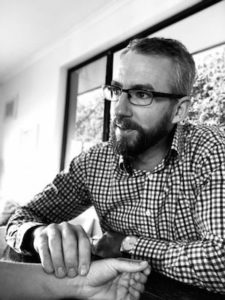 Simon Feeney is the Director of Empirical Health.
Simon Feeney is the Director of Empirical Health.
He also continues pursuing his lifelong passion for studying Traditional Medicine under a Theravadin Buddhist Monk, who has guided his learning for the past 20 years. Along with his studies in the classical Chinese Medicine works of the Han Dynasty (200BC) and the refined art of Traditional Japanese Acupuncture.
Simon is also a trained Bowen Therapist.
Don’t give up on herbs. The benefit your patients and your practice. Start small, then go big.
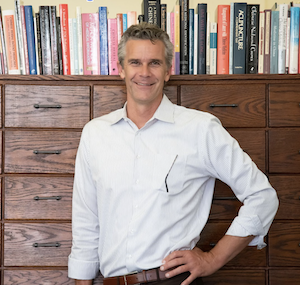 I have been in private practice as well as providing adjunct care for several clinics and hospitals since 2005. I have worked collaboratively with The Pine Street Clinic, POST Wellness, The Center for Neck and Back Pain, Doctor’s Hospital, and Elephant Pharmacy. I am a Subject Matter Expert for the California Acupuncture Board and for legal disputes involving acupuncture and chinese medicine.
I have been in private practice as well as providing adjunct care for several clinics and hospitals since 2005. I have worked collaboratively with The Pine Street Clinic, POST Wellness, The Center for Neck and Back Pain, Doctor’s Hospital, and Elephant Pharmacy. I am a Subject Matter Expert for the California Acupuncture Board and for legal disputes involving acupuncture and chinese medicine.
In 2009, I began making herbal extracts because I wanted high quality, professional herbs to give my patients. This pursuit led to Griffo Botanicals. These extracts can now be found in 45 states and three countries.
I received my BA in Comparative Religion from UC Berkeley in 2001 and MS in Traditional Chinese Medicine in 2005. After completing my masters, he spent seven years studying advanced acupuncture techniques at the knee of Master Dr. Ou.
I currently reside in Petaluma, CA with my wife, two kids, dog, chickens, koi, garden and orchard.
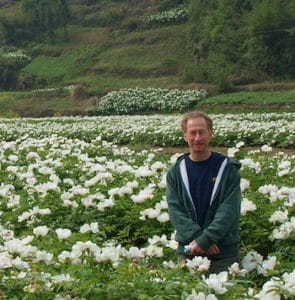
I began my study of Chinese medicine at the New England School of Acupuncture in 1981 with Dr. James So. In 1983 I went to Taiwan to study Chinese and apprenticed in herbology and acupuncture there with Xu Fu-Su in Zhang Hua. I also studied with Chen Jun-Ming in Taipei. In 1986 I went to mainland China and studied acupuncture with Dr. Shi Neng-Yun for six months and in 1988 returned to Xiamen to study dermatology, gynecology and internal medicine at the Xiamen Chinese medical hospital. I lived at the hospital for about a year. In 1990 I had the opportunity to study ear, nose and throat with Dr. Gan Zu-Wang in a one-month intensive program in Xiamen.
I returned to the US later in 1990, practiced in Florida and two years later moved to California to teach herbology at the American College of Traditional Chinese Medicine. In 1992 we founded Spring Wind Herbs, Inc.
Since that time I have practiced and taught Chinese medicine and translated, co-translated, edited or written several books on Chinese medicine including the following:
Notes from South Mountain – Thin Moon Publishing
The Clinical Experience of Dr. Shi Neng-Yun – Thin Moon Publishing
A Walk Along the River – Eastland Press
Formulas and Strategies (Second Edition) – Eastland Press
Fundamentals of Chinese Medicine – Paradigm Publications
Fundamentals of Chinese Acupuncture – Paradigm Publications
Grasping the Wind – Paradigm Publications
Handbook of Formulas in Chinese Medicine – Eastland Press
Ten Lectures on the Use of Medicinals – Paradigm Publications
Links and Resources
Interested in learning herbs in the way we discussed here in this conversation? Learn more at the Herb Immersion Workshop with JuliAnn Nugent-Head.
Visit Loren on this website, Instagram or on Tiktok
Visit Boris on his website and on Instagram
Visit Simon on his website, and check out Springwind for some of his honey pills
Visit Frank’s website to learn more about his potent and flavorful extracts, or visit his Instagram
Andy Ellis, of course, you’ll find him over at Springwind






